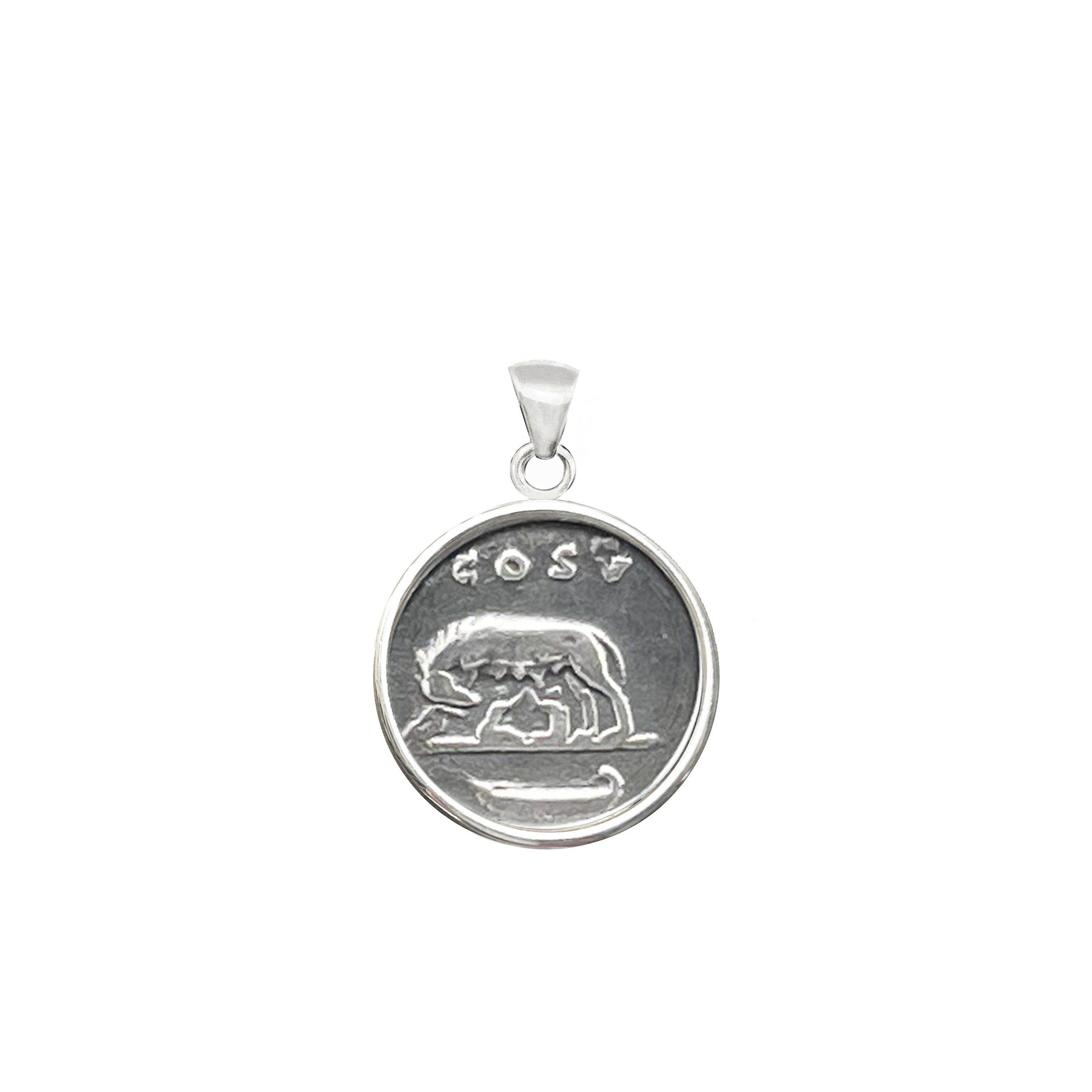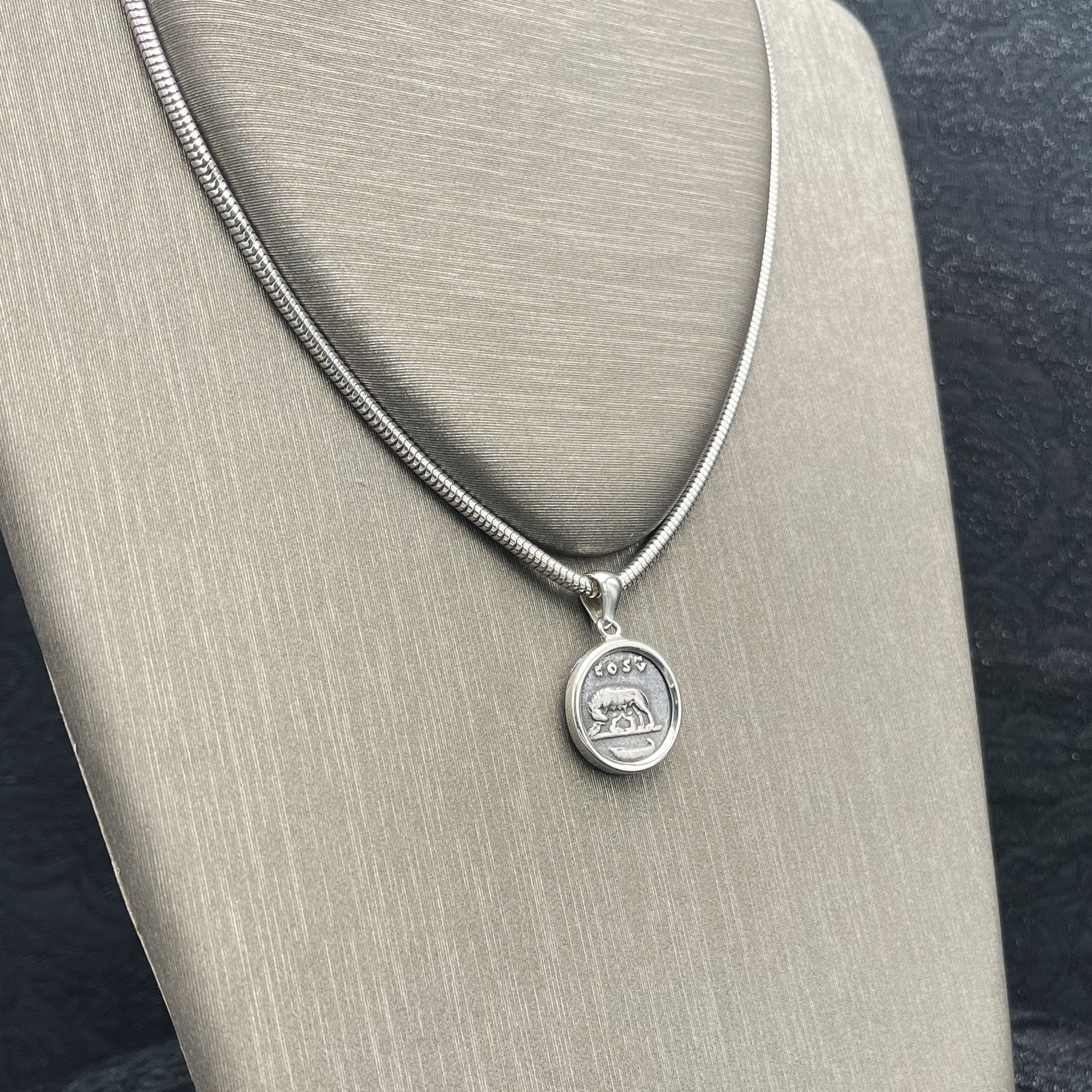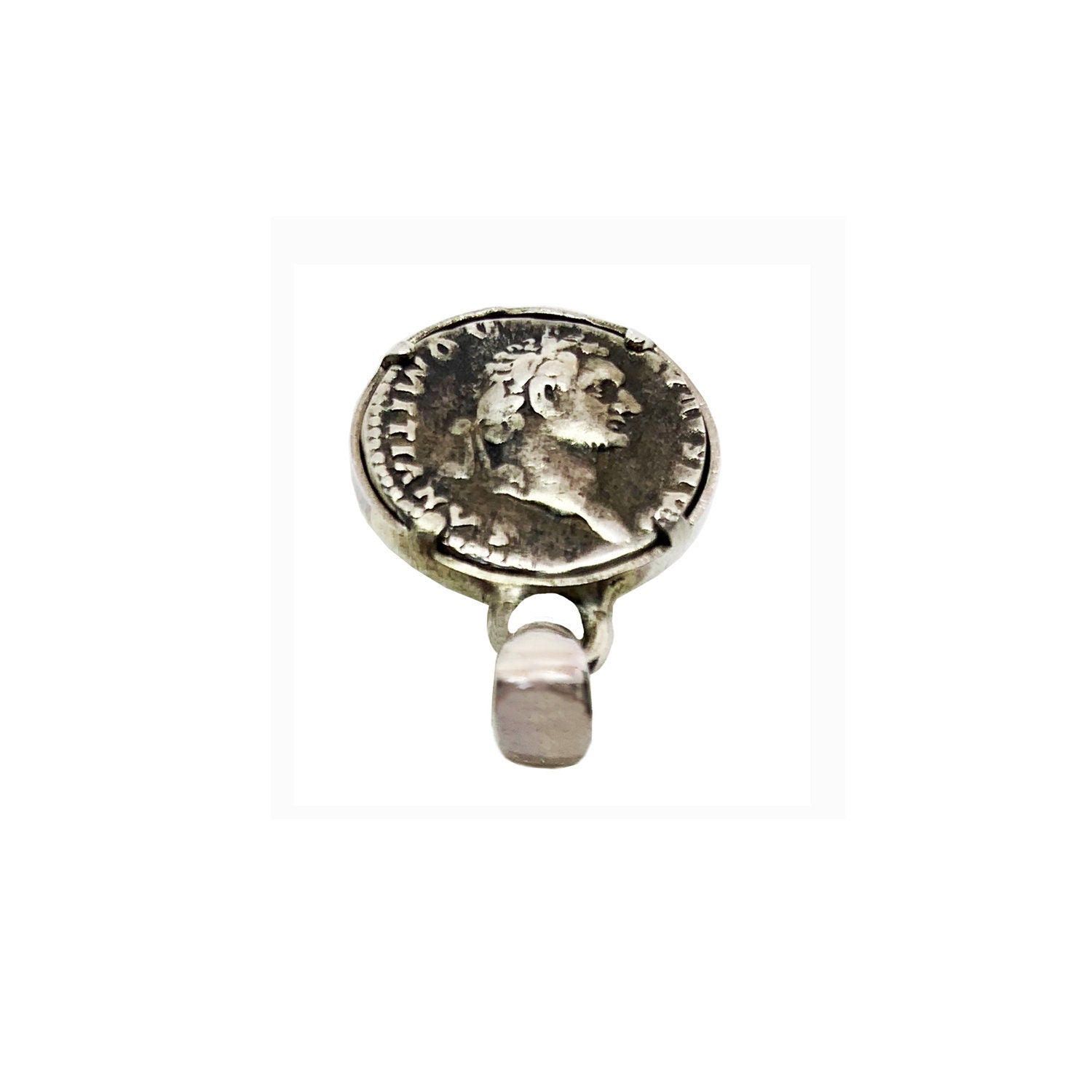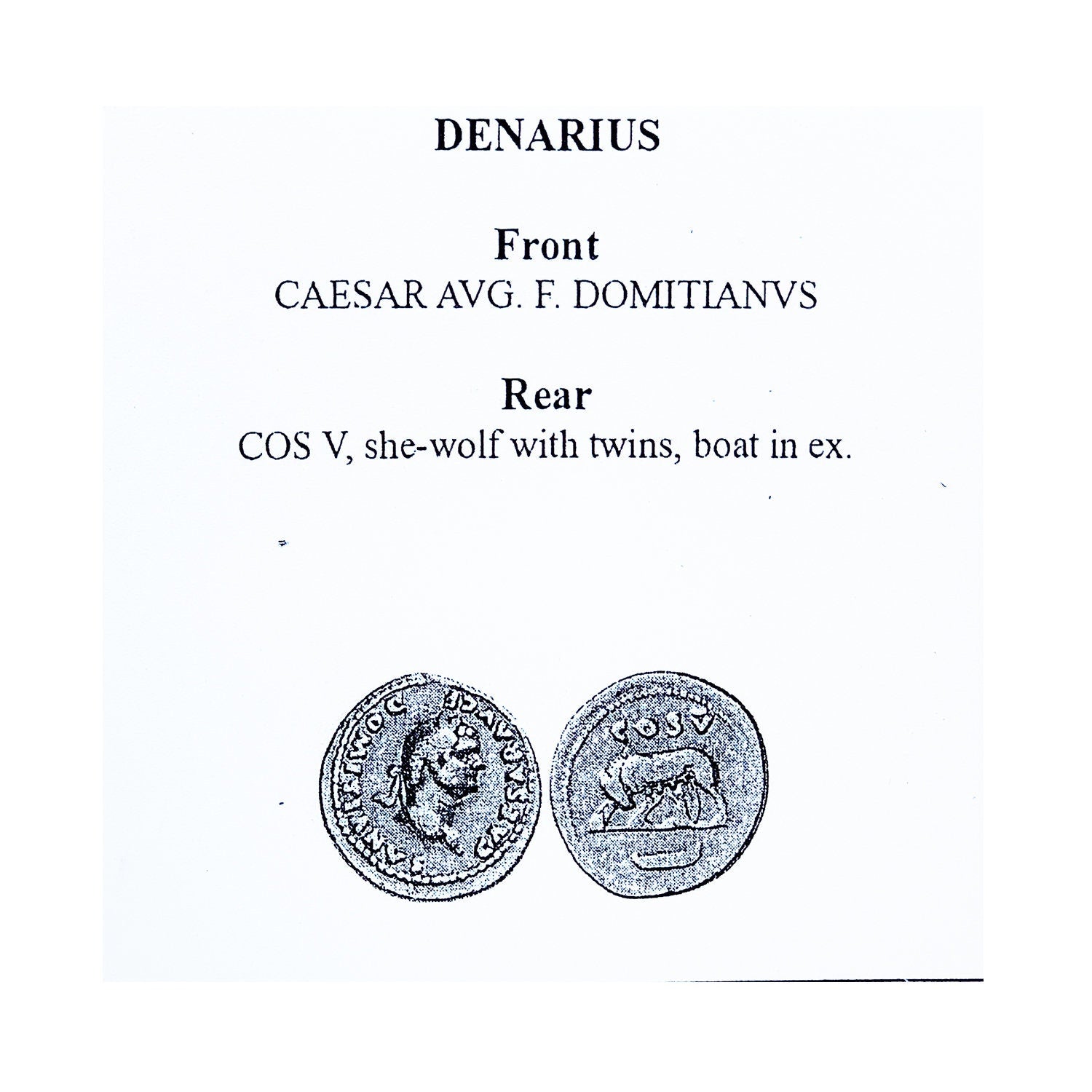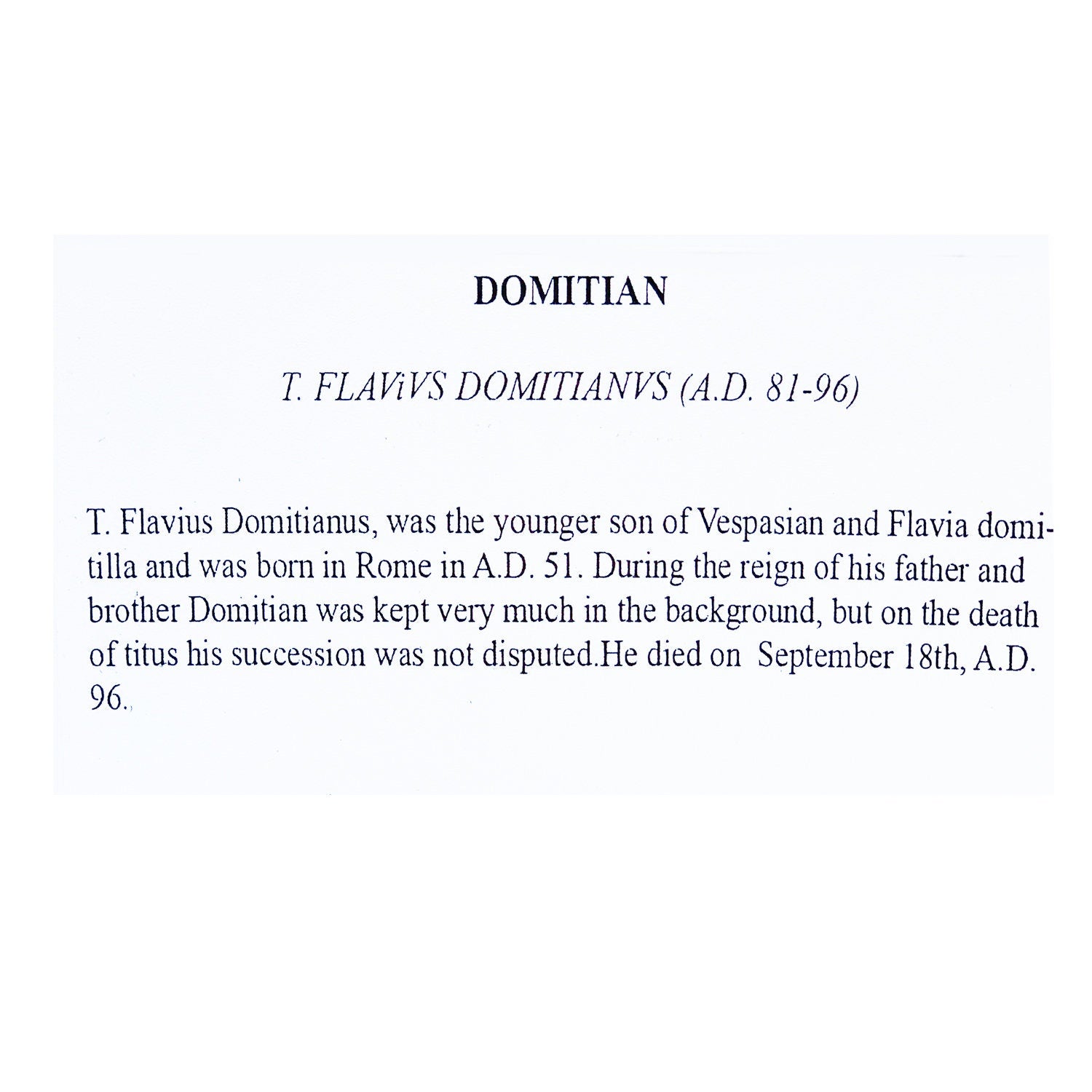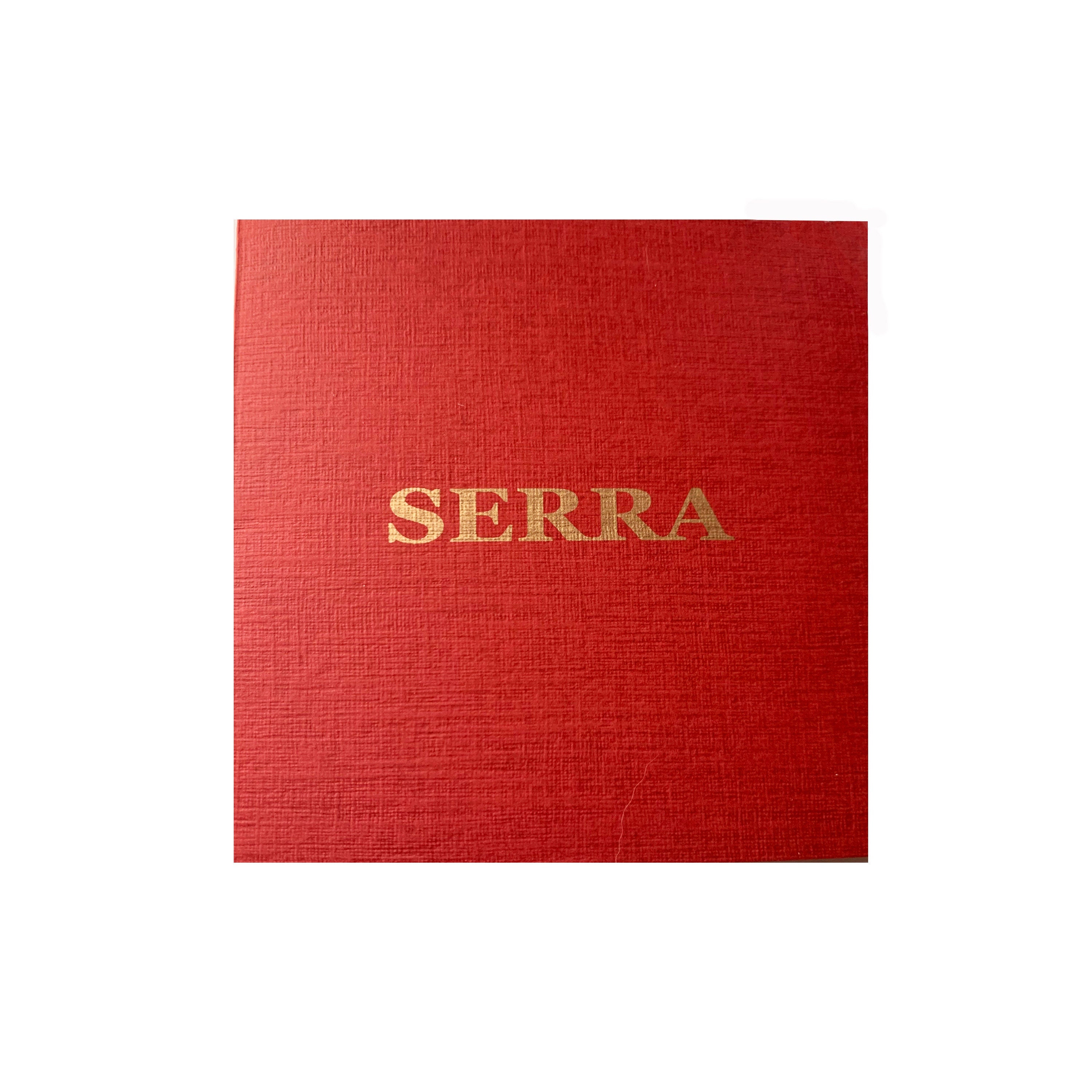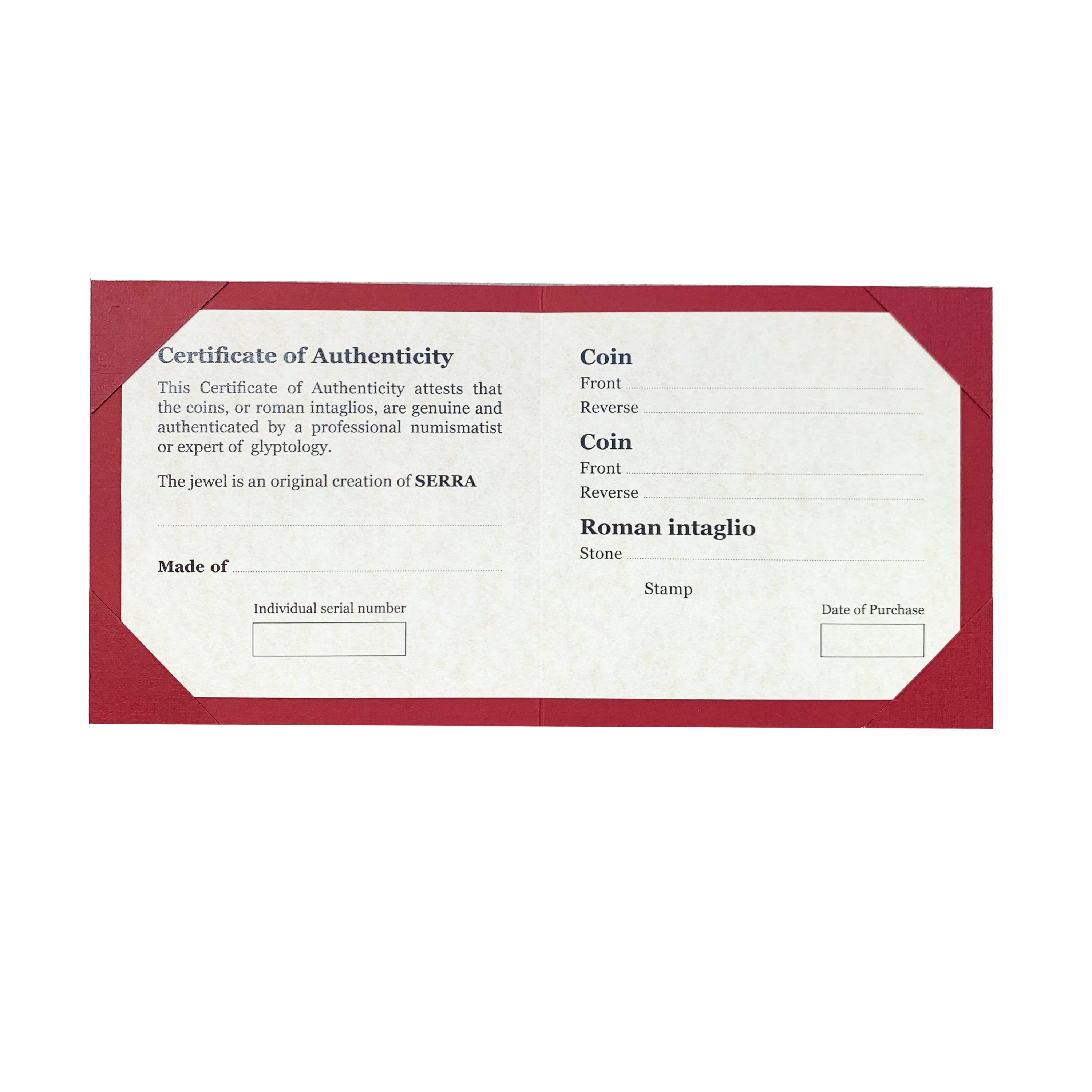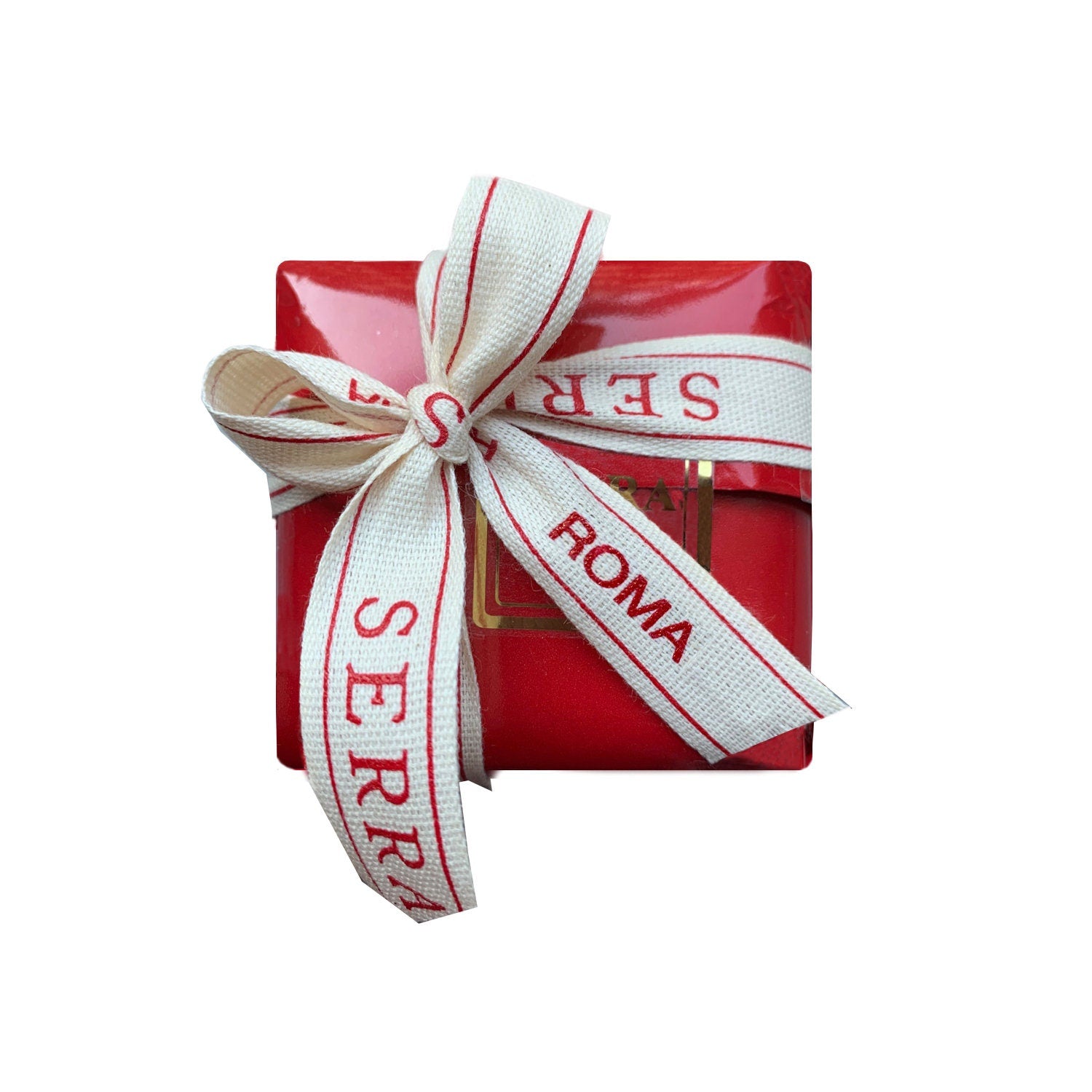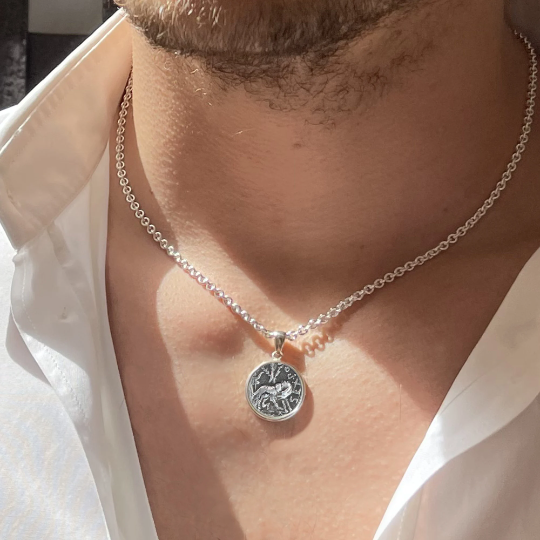SHE WOLF AND TWINS Genuine Ancient Roman Silver Coin 1st cent. AD Pendant
This sterling silver pendant features an authentic Roman coin portraying the iconic image of the she-wolf with twins. In Roman mythology, wolves hold a significant role, particularly in the tale of Romulus and Remus, the legendary founders of Rome. According to the myth, the twins were condemned to death by King Amulius of Alba Longa and cast into the Tiber River. However, the river god Tiberius calmed the waters, allowing a fig tree's roots to catch their basket near the Palatine Hill, the future site of Rome. Here, the infants were discovered and nursed by a she-wolf named "Lupa," as depicted in numerous artworks from across the Roman Empire.
Following their rescue, the twins were later found and raised by a shepherd and his wife, Faustulus and Acca Larentia. Throughout Roman history, the wolf symbolized the strength and power of Rome, thus frequently appearing in art and on coinage of both the Republic and the Empire. The earliest known statue of the she-wolf suckling the twins dates back to 296 BC, reflecting the enduring significance of this myth.
Moreover, dedications to the she-wolf, such as those to the 'Roman she-wolf' and the 'august She-Wolf,' highlight the close association between this symbol and the Roman state. These dedications were often made by priests of the imperial cult, underscoring the political and religious importance of the she-wolf.
On the reverse side of the coin, Emperor Domitian's effigy is depicted. During his reign (AD 81-96), Domitian implemented various measures to strengthen the economy, expand the empire's border defenses, and rebuild Rome's infrastructure following damage. However, his governance also exhibited authoritarian tendencies, with Domitian promoting a cult of personality and seeking to control public and private morals. While popular among the populace and the military, he faced opposition from the Roman Senate and was eventually succeeded by his advisor Nerva.
Our jewelry store, Serra Roma, proudly presents an exquisite collection that beautifully honors the ancient traditions of Greek and Roman civilizations. Each piece in our collection, including authentic ancient Roman and Greek coins and intaglios, is accompanied by a certificate of authenticity, providing proof of its historical significance and origin.

